Delta CEO Says You’re “Never Again Gonna See” These Flights
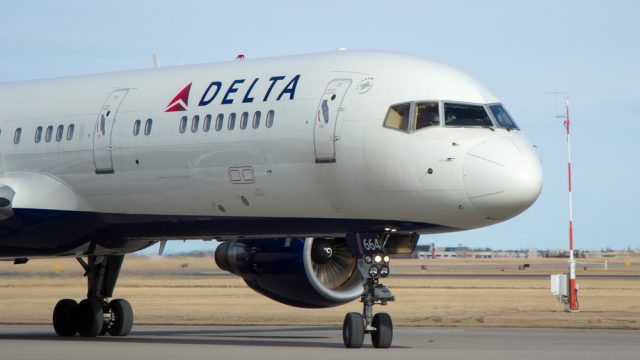
Jumping on a flight can always provide a much-needed change of scenery. But in recent months, the airline industry itself has undergone plenty of changes that are hard not to notice. Besides lifting COVID-era health precautions, companies are fine-tuning everything from pre-takeoff perks to in-flight offerings—not to mention reconfiguring their schedules and route maps. Now, the CEO of Delta Air Lines has said there are some flights that passengers are “never again gonna see” as more changes are in store. Read on to see how the future of travel could look, according to one of the industry’s top executives.
READ THIS NEXT: American Is Cutting Flights to These 8 Major Cities, Starting Nov. 3.
Difficult changes over the past year are finally paying off for Delta.
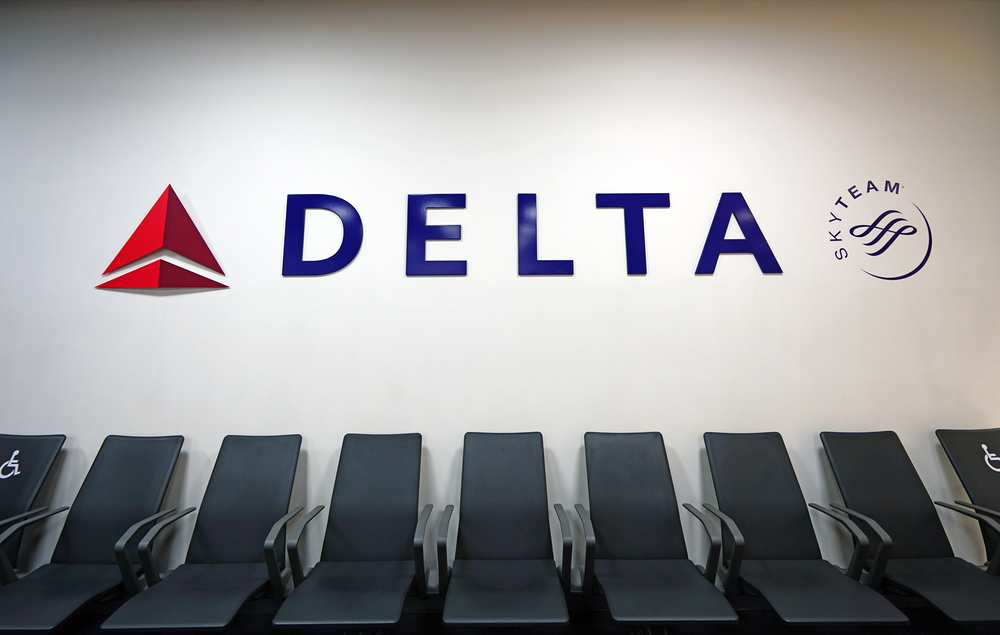
To say that airlines have had a difficult climb back after two years of pandemic-related problems would be an epic understatement. Even as restrictions have come down, lingering effects on staffing have created a scheduling nightmare that has resulted in industry-wide waves of cancellations and delays. But during an appearance at the Airports Council International annual conference in Minneapolis on Sept. 20, Delta CEO Ed Bastian said things were finally starting to turn around for his company, reporting that most of the carrier’s operations were running better than they were before COVID brought air travel to a screeching halt, the Star Tribune reports.
“For the first 18 days of September, we’ve operated about 50,000 mainline flights over that period. The sum total of cancellations we had were 43 out of 50,000,” he said. “That’s a 99.92 percent completion rate, which candidly our partners, our customers deserve, but when you think about the media narrative that’s still out there, people are still nervous, and the reality is we’ve got to continue to prove our way back.”
But the executive also pointed out that not everything will likely come back as it was years ago.
The Delta CEO said that you’re “never again gonna see” certain flights going forward.
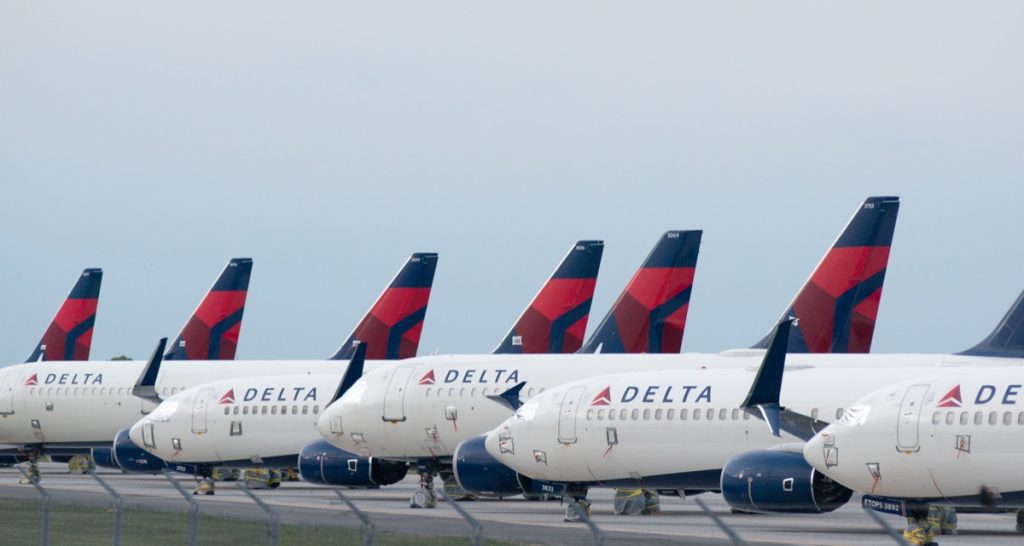
When discussing the industry’s future, Bastian remained optimistic about maintaining growth. But he said that employment shifts within the industry also meant that some changes brought about during COVID may not come back as they were before, including service to smaller regional airports.
“For some markets, we’re gonna need to make choices as to whether we’re gonna fly a larger flight, whether we’re gonna consolidate the number of operations, but you’re never again gonna see the 50-seat aircraft have the level of prominence in the industry,” Bastian told the conference, per CBS News. “In fact, at Delta, we’re just about out of them. I think we have less than 20 that we’re flying today.”
“When Delta merged with Northwest in 2009, collectively we had about 1,200 aircraft as a company; 500 of those were 50-seat or smaller aircraft,” he explained. “That’s down to almost nothing now today.”
Bastian said that Delta granted roughly 20,000 early retirements for its employees during the early days of the pandemic, including about 2,000 pilots—a move he says he now somewhat regrets, according to the Star Tribune. But even though the company has regained about 85 percent of its workforce, more significant changes in the industry mean that regional airports may not see their cut flights return.
RELATED: For more up-to-date information, sign up for our daily newsletter.
Many airlines have recently cut their service to regional airports.
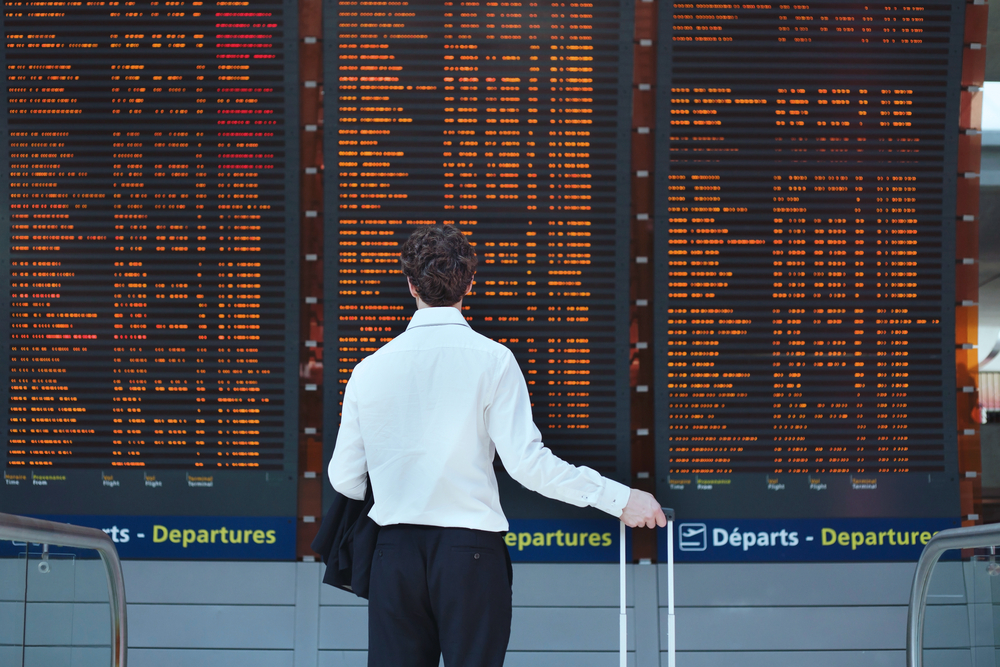
It’s not just Delta that’s been struggling to keep up with its route requirements in the face of staffing shortages. This past year has seen many of the major carriers entirely cutting their flights to smaller regional airports.
American Airlines announced earlier this year that it would be pulling out of Ithaca and Islip in New York; Dubuque, Iowa; and Toledo, Ohio as of Sept. 7, FinanceBuzz reports. United Airlines also previously announced it would drop all flights in and out of College Station and Killeen, Texas; Columbia, Missouri; Evansville, Indiana; Kalamazoo and Lansing, Michigan; Monroe, Louisiana; and Wausau, Wisconsin.
JetBlue also announced cuts of its own. The budget airline said it would no longer service Boise, Idaho or Kalispell, Montana earlier this year, FinanceBuzz reports.
Delta is seeing big growth in other markets and is focusing its attention there.
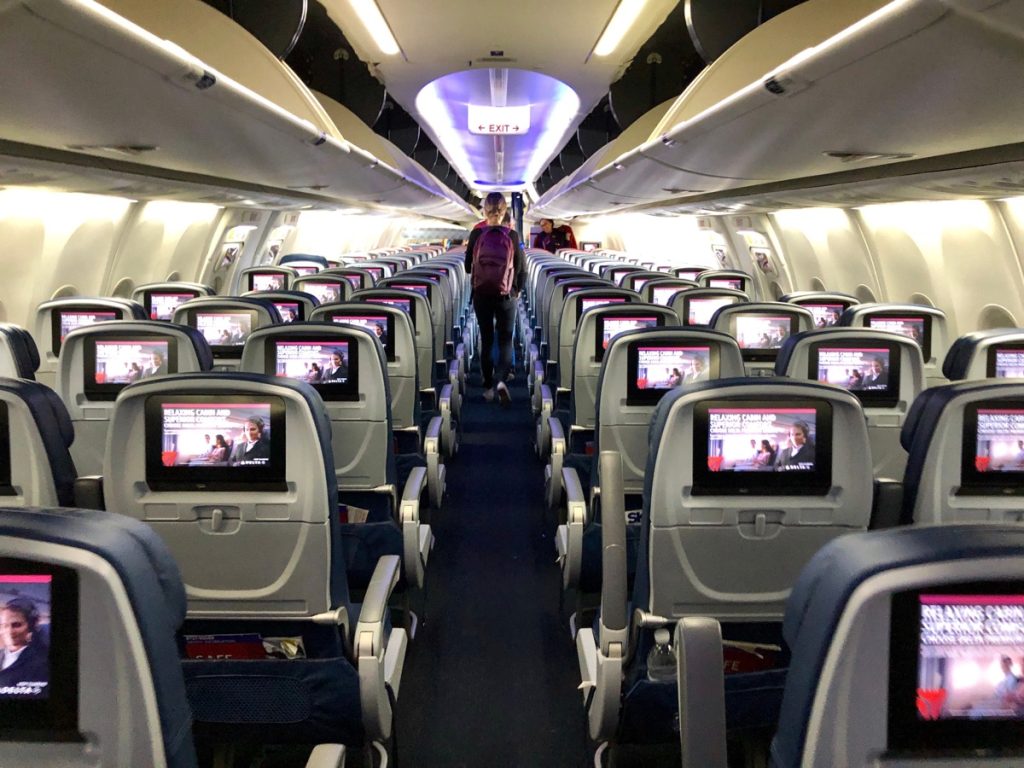
Despite the fundamental changes to certain markets, Bastian said the company was seeing a solid recovery in other areas. He reported that Delta’s domestic passenger revenue in the second quarter actually surpassed that seen in the second quarter of 2019, while international passenger revenue was 81 percent recovered when comparing the same period, the Star Tribune reports.
“We’re flying more to Europe this fall than we’ve ever flown in any fall in our history,” Bastian told the conference. “The world has wanted to travel again, and the world has wanted to travel in unprecedented numbers, and the momentum is really, really great to see.”
The executive also said that the COVID experience provided essential lessons about how the company should operate in the future, including the importance of bringing people together and staying devoted to its customers, CBS News reports.
“Putting people ahead of profits,” Bastian replied when asked about what he learned during the pandemic. “I can remember the conversations we had about blocking the middle seats. Delta blocked the middle seats longer than any airline in the world did. We did it for almost a year and a half until people could get vaccinated and whatnot. Customers still thank me every single day when they see me. That was focused on taking care of them, but it was also focused on taking care of our own people because our own people didn’t want to be on crowded planes any more than our customers did.”